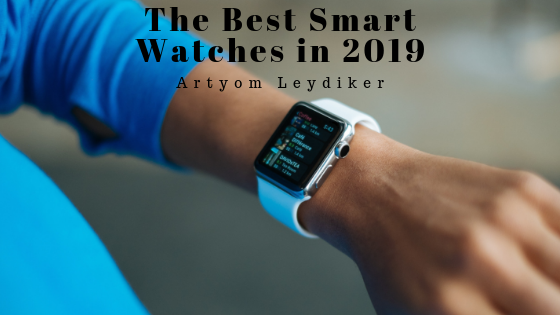About Artyom
Artyom Leydiker has been interested in technology for as long as he can remember. Now more than ever, technology has become a domineering force — both in our individual everyday lives and in global shifts toward change and progress in business, entertainment, education, and much more. Artyom created this blog to share some of the news and trends in technology that inspire him, including but not limited to virtual reality, artificial intelligence, and the rise of blockchain. Check out his blog page for all content, or get started with a few posts below!

The Future of Mobility
The transportation of tomorrow will be cleaner, more efficient, and much more inclusive. Tomorrow’s transportation challenges call for low-carbon solutions and the delivery of transportation solutions to underserved communities. The transition into renewable energy resources will not be easy, but there are businesses now who are facing the challenge head-on.
Low Carbon
After all, mobility is more than the movement of people to and from work. Mobility in an increasingly connected global marketplace includes the transportation of goods and the facilitation of global trade, which requires cheap yet low-carbon options.
The energy of the future will have to draw on advancements in technology, especially lithium-ion batteries and solar, in order to accommodate a greater need for travel without resulting in more pollution and congestion in cities.
Safe and Reliable
By shifting to alternative forms of sustainable energy like electric cars powered by lithium-ion batteries, the U.S. can transition away from a reliance on carbon technology.
Such a transition will reduce the United States’ role in perpetuating climate change and lead to more energy independence. Right now, the entire Western world is ultimately beholden to oil-producing countries for basic energy needs.
Moving away from an unstable system to a more stable future will mean that the future of mobility will be relatively immune to external shocks like sharp upticks in the price of oil and imbalances in the Middle East.
More Convenient
Autonomous and semi-autonomous vehicles that draw on millions of hours of driving experience and artificial intelligence will make driving much more safe in the future. Autonomous vehicles are already more safe than ones operated by humans.
The experts say that autonomous trucks could displace as many as three million truck drivers over the next decade. Both job displacement and greater connectivity might be on the horizon in global transportation.
More Inclusive
Ride hailing and autonomous vehicles might actually save lives insofar as over one million people die every year in fatal car accidents.
That number will go down sharply as public transportation is extended to underserved communities and autonomous vehicles become more mainstream and accepted by society.
As with many changes in society, the effects may be felt first in densely populated cities like Los Angeles, which are experimenting most heavily right now with extending public transportation, electric scooters, and ride sharing.

The Best Smart Watches in 2019
Apple’s first foray into the smartwatch market with the Apple Watch was largely seen at the time as a stumble. Today we can see it more accurately for what it was: a proof of concept. The tech behind wearables is more sophisticated and affordable than ever before, and manufacturers have mined those early mistakes to learn what works and what doesn’t. Today the smartwatch industry is booming. Here are some of the best wearables in 2019.
Samsung Galaxy
If there’s a single true competitor to Apple in the smartwatch market, it’s Galaxy. They’ve recently spread their wings and detached from Google’s Wear OS in favor of their own operating system, and it bears a refreshingly strong and intuitive interface. The Galaxy is their flagship: a powerful gadget that includes a dedicated app store, a unique rotating bezel navigation system, and a wealth of fitness options.
Fossil Sport
One indication of the rise of smartwatches is the fact that traditional luxury manufacturers are throwing their hats into the ring. Fossil is one of the most prominent, and their Sport is a respectable addition. It may not come to the table with any startling revelations, but it’s a powerful piece of tech that looks good on the wrist and comes packed with all the now standard features of the modern wearable.
Apple Watch 4
Apple’s early forays into the smartwatch market didn’t exactly take the world by storm, but today they’re the name to be beat in the top tier. Their fourth generation watch may be expensive, but it’s also the standard by which all other smartwatches are judged. The slick minimalistic design is copied by countless imitators, and the breadth and depth of its App Store is absolutely unmatched. They’re also leading the pack with innovative features like the first heart rate monitor to be certified by the FDA.
Fitbit Versa
Fitbit’s found its niche and stuck with it, and the results are truly phenomenal. They’re the leading designer around as far as fitness-oriented smartwatches are concerned. The Versa is their entry level model, and despite its low price tag, it comes equipped with practically every health-related feature you could want and an array of exercise tracking modes.
Reedsy / Behance / Twitter / Stumbleupon / Crunchbase / Medium / Slideshare / Soundcloud